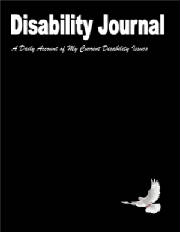|
|
Question #58 If you get approved for additional compensation for your service connected injuries can
it help get you TDIU? I'm service conceded for ddd 10%, sciatica both legs 20%, major depression
10%, bilateral plantar fascist 10%,hypertension 10%. I received my SSDI the first time around with out any exams. I have applied
for TDIU, increase in ddd, sciatica and major depression.
A1: To be eligible for IU you must have disabilities
that cause you the inability to engage in substantial gainful employment. Social Security and VA compensation are not the
same. If you have SSDI and they deemed you disabled and your SSDI claim contained your service connected disabilities, then
if you file an IU claim make sure you submit your SSDI award letter with your claim. Understand even under these conditions
the VA does not have to accept the findings of SSDI and vice versa. These are what's needed for IU.
1. One
disability rated at 60%,
2. A combined rating of 70% or higher with at least one of these disabilities rated
at 40%.
3. A statement from your physician that because of your disabilities renders you unemployable. (this is
a very rare occurrence). (CP) 5/17/2016
A2:
My computation shows that you are probably receiving 50% and the VA will not give a IU because you do not have one disability
rated at 60% or combined ratings of 70%. Technically you should be able to get an IU with a 50% rating but I've never
seen it done. But I suggest that you back through the DBQ and C&P Examination on the Major Depression NOS rating
and compare it with DC 9440. You may find that the rater should have given a higher rating than 10%. Many raters
sometimes think that all of the symptoms must be exhibited so you may have been lowballed on the rating. But, the appeal
would have to be done based upon clear and unmistakable error if your rating is more than 1 year old and you did not file
a Notice of Disagreement on the original decision. (CP) 5/17/2016 A3: Right now, you don't qualify for TDIU.
According to 38 CFR, to qualify, Total disability ratings for compensation may be assigned, where the schedular rating is
less than total, when the disabled person is, in the judgment of the rating agency, unable to secure or follow a substantially
gainful occupation as a result of service-connected disabilities: Provided That, if there is only one such disability, this
disability shall be ratable at 60 percent or more, and that, if there are two or more disabilities, there shall be at least
one disability ratable at 40 percent or more, and sufficient additional disability to bring the combined rating to 70 percent
or more. For the above purpose of one 60 percent disability, or one 40 percent disability in combination, the following will
be considered as one disability: (1) Disabilities of one or both upper extremities, or of one or both lower extremities, including
the bilateral factor, if applicable, (2) disabilities resulting from common etiology or a single accident, (3) disabilities
affecting a single body system, e.g. orthopedic, digestive, respiratory, cardiovascular-renal, neuropsychiatric, (4) multiple
injuries incurred in action, or (5) multiple disabilities incurred as a prisoner of war. It is provided further that the existence
or degree of nonservice-connected disabilities or previous unemployability status will be disregarded where the percentages
referred to in this paragraph for the service-connected disability or disabilities are met and in the judgment of the rating
agency such service-connected disabilities render the veteran unemployable. Marginal employment shall not be considered substantially
gainful employment. For purposes of this section, marginal employment generally shall be deemed to exist when a veteran's
earned annual income does not exceed the amount established by the U.S. Department of Commerce, Bureau of the Census, as the
poverty threshold for one person. Marginal employment may also be held to exist, on a facts found basis (includes but is not
limited to employment in a protected environment such as a family business or sheltered workshop), when earned annual income
exceeds the poverty threshold. Consideration shall be given in all claims to the nature of the employment and the reason for
termination. (AP) 5/18/2016
|
If you can help please respond to this question.
|


